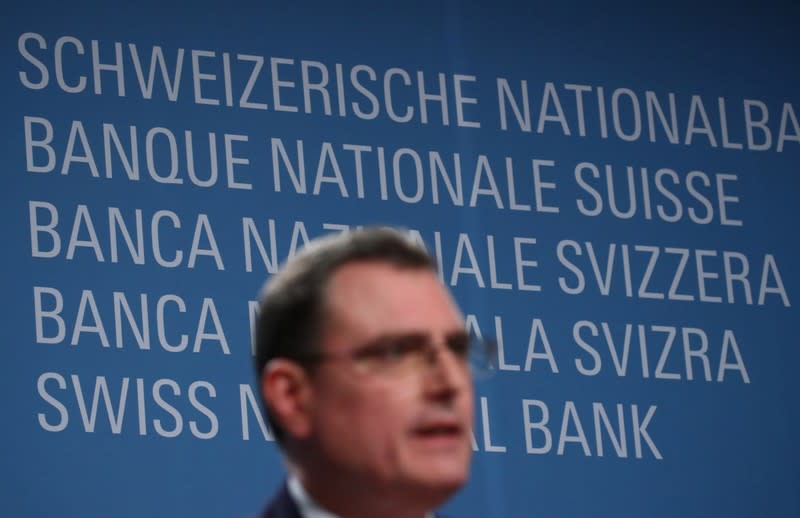SNB chairman sticks to negative interest, intervention: Swiss government

ZURICH (Reuters) - Swiss National Bank Chairman Thomas Jordan is sticking to his policy of negative interest rates and the readiness to intervene in foreign exchange markets to tamp down on the Swiss franc's value as the economy stays fragile, the Swiss government said on Wednesday.
The seven-member Federal Council issued the announcement after its annual meeting with Jordan to discuss monetary policy and the economy, a session where the panel said the SNB boss re-emphasized that the dangers of deteriorating international conditions remained high.
"Inflation is down, the global low interest environment has grown further entrenched and the situation on foreign exchange markets remains fragile," the government said. "Against this backdrop, Chairman Jordan emphasized that monetary policy with negative interest rates and the readiness to intervene is just as necessary as before."
Jordan also reiterated the SNB's concern that imbalances on the Swiss real estate and mortgage markets endure, in particular regarding residential investment properties where cheap money has helped fuel a building spree.
(Reporting by John Miller; editing by Thomas Seythal)

 Yahoo Finance
Yahoo Finance 